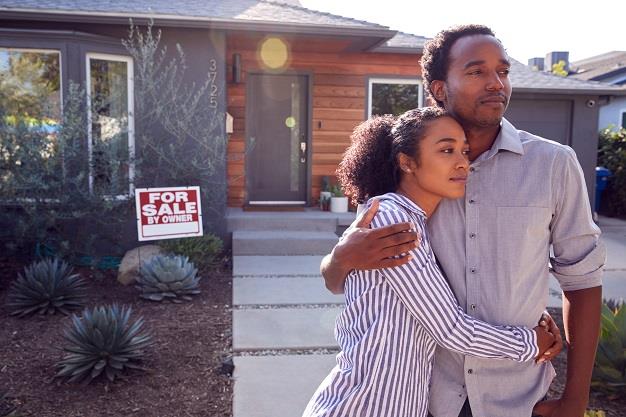With current property market conditions leaning strongly in favour of buyers, sellers may wonder what the best approach is when selling their home to acquire a new property.

It’s the age old debate; do you sell first and then look for a property to buy, or do you buy first and then hope to sell your property quickly?
“There are pros and cons to consider for each option,” says Anita Griesel, Property Consultant at Jawitz Properties Durbanville. In an ideal world, once your home is sold, you will soon find somewhere new to live, buy your new home and everything will go smoothly.
However, in the real world and in the present property market, this is not always how things play out.If you choose to sell first, you’ll have cash in your pocket to buy again and you will have a clear indication as to what you can afford. When you find a new property to buy, you will be able to make an offer that is not subject to selling your property, and most sellers prefer an offer without any encumbrances.
READ | Trying to sell property privately? Beware of these 8 specific pitfalls
The process of selling one home and buying another often happens simultaneously. In the Offer to Purchase, there are many conditions of sale that can be included to suit both the Buyer and Seller.
Clauses commonly found in this contract include:
- A specified time period for the sale of the house in question
- The sale being subject to the initial homeowner purchasing a new property.
Other conditions of a sale include finance approval, and occupational rental dates.
If there is a substantial period of time between selling and buying, including an occupational rental clause in the condition of sale could be the easiest and least risky option for the Seller.
'Buying a home without being under pressure'
However, depending on how long it takes for you to find a new home that fits your specifications, and for the buying process to be completed, you may have to pay rent for a temporary residence.
Selling your property can take time, but if you can secure your new home, you will have somewhere to move into immediately once you do sell.
“You should look at various criteria both in your area and in the area where you’d like to buy. Look at recent sales figures, the average time properties take to sell, and how much interest buyers have in these areas. Be realistic about how much time you need to find a new home, as well as how much time is needed to sell your existing property,” says Griesel.
Risk of two bonds, or rushing your purchase
Adrian Goslett, Regional Director and CEO of RE/MAX of Southern Africa says it clearly comes down to three scenarios:
A. I’m selling my current home as equity for my new home
In this case, there will be a suspensive condition in your offer to purchase (OTP) that states that the sale of the home will only go ahead once your property has been sold. If there is more than one offer on the table, your offer could be rejected.
If you do sell first, he says you will need to find yourself a temporary living situation until you’re able to move into your dream home. Your temporary living options include:
1. Paying occupational rent to remain in your current home which you’ve already sold to avoid moving costs and the hassle of moving twice.
2. Staying with a friend to avoid paying rent. However, this comes with the pain of having to move more than once, and you will also have to pay for a storage unit in which to keep all of your furniture.
3. Finding a short-term rental. This includes the risk of not knowing how long you need to rent a space for, as well as moving costs and possible storage unit costs if you’re renting a smaller space that cannot accommodate all of your furniture.
B. I’m setting up bridging finance
You could set up a bridging finance option on your current home loan to reduce the risk of your offer being rejected.
“The bridging finance will be based on the equity available on the property, your credit record and the expected cash inflow. However, you are advised to read the fine print on this financing option very closely. There are all kinds of interest payable and administrative costs involved in this option, and it can end up being a rather costly option,” warns Goslett.
C. I’m buying cash
“If you can afford to purchase a second home without first selling your first home, working out the answer to this question doesn’t become much simpler,” he says.
READ | When does Capital Gains Tax apply to a property sale?
Also consider
“Should you choose to buy first, you carry the risk of having to pay off two bonds while you wait for the sale of your first home," he says. "Should you choose to sell first, you still run the risk of rushing your purchase in order to limit the amount of time spent in your temporary living situation.”
Whichever option sellers choose to go with, Goslett advises they involve a real estate professional to guide them through the process.








